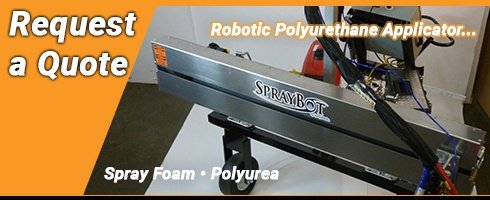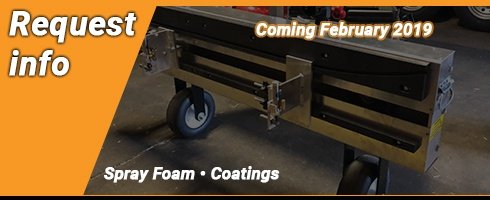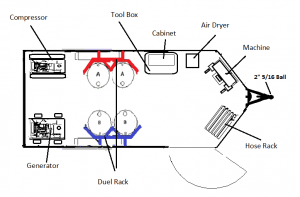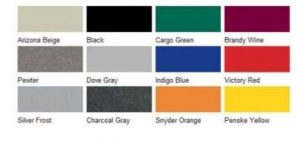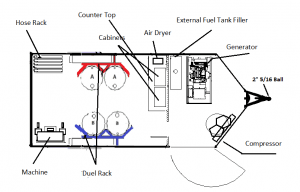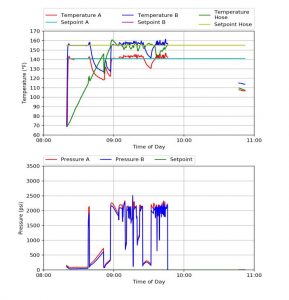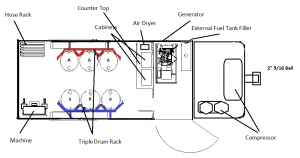When you’re getting ready to start a client’s insulation project, consider using closed-cell spray foam. Closed-cell spray foam consists of tiny gas bubbles that are suspended during both the application and curing process. These gas bubbles form because none of the cells are connected. Being filled with gas, the tiny bubbles are tightly packed into the foam, making the finished material durable and ideal for use in heavy-duty applications.
Learn about closed-cell spray foam insulation and how it can be an asset in your future projects.
Defining Closed-Cell Spray Foam
Closed-cell spray foam is classified as polyurethane foam. It is a two-component mixture that requires an ISO and a resin. These components are blended together to create a product that is free from ozone-depleting blowing agents, catalysts, and polyols.
Use closed-cell spray foam to insulate buildings, HVAC units, refrigerated rooms, and more, as it can be a substitute for fiberglass, cellulose, or other loose-fill products. Let’s discuss the industries that benefit from this material and why it is appropriate for such a wide variety of projects.
Benefits of Using Closed-Cell Spray Foam
Closed-cell spray foam is great for a variety of projects because of its impressive characteristics. It is versatile enough to use on diverse applications and is flexible enough to conform to irregular areas to fill the nooks and crannies of every space.
Additional benefits of using closed-cell spray foam insulation include the following:
- Good insulation – Because of its high R-value, closed-cell spray foam has great insulation properties. This means it can be used to reduce heat transfer as well as increase energy efficiency. Additionally, it can add comfort to homes and other buildings by keeping them cooler in the summer and warmer in the winter.
- Air-tight seal – Closed-cell spray foam expands which allows it to fill cracks, gaps, voids, and other small spaces to create a completely air-tight seal. This property helps prevent heat and air from escaping while keeping a building free from pests that sneak through these cracks.
- Moisture resistant – Closed-cell spray foam is a great solution for humid environments because it prevents water vapor from entering a space. This results in reduced condensation, mold growth, and other issues related to moisture. Its ability to lock out moisture also contributes to a longer lifespan.
- Longevity – Closed-cell spray foam is durable enough to keep its useful properties over time. Since it does not settle or sag, you can expect long-lasting performance without needing to replace it frequently.
While closed-cell spray foam brings heating and cooling bills down because it keeps desired air in, it also helps keep bad air from entering a property.
You might be wondering, “What exactly is bad air?” When we say this, we mean the toxins, allergens, and bacteria that regularly enter a space and cause people to get sick. So, using closed-cell spray foam is a great option because it’s not only the green choice but it also helps keep families, employees, and others safe and healthy.
Best Uses for Closed-Cell Spray Foam
As stated above, closed-cell spray foam can be used for a variety of applications because it features so many benefits. From building insulation to product protection, there are endless ways to use closed-cell spray foam.
Some applications are more common than others, so be sure to check out this complete list.
- Buildings – Companies often apply closed-cell spray foam insulation to residential, commercial, and industrial buildings. It is typically used for roofs, walls, and attics to seal out moisture and seal in air or heat.
- Roofing – The primary purpose of using closed-cell spray foam on roofs is to prevent air leakage by sealing gaps and cracks. However, it is also used to enhance the structural integrity of the roofing structure as a whole.
- Cold storage units – Using closed-cell spray foam in cold storage areas like freezers, walk-in coolers, and refrigerated trucks helps stabilize temperatures and prevent the cold air from leaking out.
- HVAC – Air conditioning, heating, and other forms of ventilation are great candidates for closed-cell spray foam insulation because it can be applied to enhance insulation. This helps prevent energy loss and promotes efficiency.
Get Your Closed-Cell Spray Foam Insulation from SprayWorks Equipment
With over 100 years of combined polyurethane industry experience, SprayWorks Equipment is your destination for insulation and equipment. We supply reliable and cost-efficient spray foam products to all fifty states, Canada, and Mexico. Our store has closed-cell spray foam insulation from well-known vendors like Green Shield and Gaco, and we even manufacture our own!
Be sure to shop our online store today for closed-cell spray foam insulation, where you can conveniently browse and purchase all of your favorite spray foam products and equipment.
Contact Us Today!
If you have any questions about closed-cell spray foam, its applications, or even classes that can help you to get started, be sure to reach out to the team of experts at SprayWorks Equipment.
We are happy to help!

